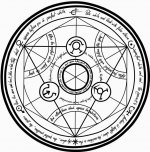EzekielRaiden
Follower of the Way
Warning: you cannot change your vote(s). Pick one or two responses. Make sure you're confident about your choice(s) before submitting.
As stated in the question: Should there be something mystical, beyond the true understanding of mortals? I have seen a great many statements over the past decade (...which makes me feel old) that intimate something like this, and I'd like to hear what ENWorld has to say.
You may, of course, use your own definitions of "mystical," "unknowable," etc. But if you would like a guideline for the kind of thing I'm thinking of, it seems that most people who want this feel magic should be at least a little bit beyond human(oid) control, something with mysteries that can never be truly resolved or questions that cannot even in principle get objective answers. That "magic" might sometimes be studied with an empirical (aka "scientific") mindset, but ultimately empirical study will fail to truly capture what it is, how it works, and what it can do. That the rules of magic, if they even exist, are partially or wholly unknowable to mortal-kind.
As stated in the question: Should there be something mystical, beyond the true understanding of mortals? I have seen a great many statements over the past decade (...which makes me feel old) that intimate something like this, and I'd like to hear what ENWorld has to say.
You may, of course, use your own definitions of "mystical," "unknowable," etc. But if you would like a guideline for the kind of thing I'm thinking of, it seems that most people who want this feel magic should be at least a little bit beyond human(oid) control, something with mysteries that can never be truly resolved or questions that cannot even in principle get objective answers. That "magic" might sometimes be studied with an empirical (aka "scientific") mindset, but ultimately empirical study will fail to truly capture what it is, how it works, and what it can do. That the rules of magic, if they even exist, are partially or wholly unknowable to mortal-kind.



